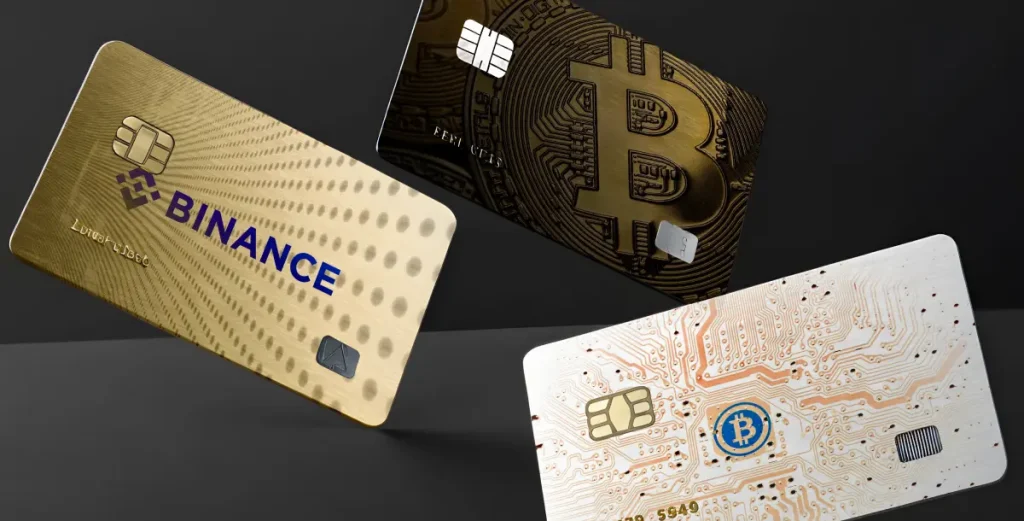Real estate has long been a cornerstone of wealth, but its high barrier to entry and lack of liquidity have kept many would-be investors on the sidelines. Asset tokenization is changing that. By converting property rights into digital tokens on a blockchain, it enables fractional ownership, opens global investor pools, and creates pathways for liquidity that were once unthinkable. The market for tokenized real-world assets (RWAs) is projected to grow from $3.5 billion to over $19.4 billion by 2033, and real estate is at the forefront of this transformation.
Choosing the right technology partner is the most critical decision for any real estate operator or founder entering this space. The right platform provides not just the tech stack but also the regulatory rails, investor experience, and go-to-market strategy needed to succeed. This guide breaks down the top 5 asset tokenization companies for real estate, what they do, and who they’re best for.
The Top 5 Asset Tokenization Companies (2025)
1. RealT — Fractional U.S. Rentals with Crypto-Native Payouts
RealT has pioneered the fractional ownership of U.S. residential rental properties. Operating primarily on the Ethereum mainnet and Gnosis chain, it allows global investors to buy fractions of single-family homes and receive rental income directly to their crypto wallets.
Distributions of rental income are paid out weekly in USDC, a dollar-pegged stablecoin. This crypto-native approach provides a powerful combination of real-world asset stability with the efficiency of DeFi. RealT’s investor dashboard provides transparent reporting on property performance and governance tools, making it a favorite among crypto-savvy investors. Note that RealT’s offerings are not currently available to U.S. citizens or residents.
- Who it’s best for: Non-U.S. crypto investors seeking regular, passive income from U.S. rental properties with low entry points.
- Watchouts: Limited to U.S. residential rentals and currently inaccessible to U.S. persons, which may impact overall liquidity.
2. Propy — On-Chain Title & Smart-Contract Closings
Propy is a licensed real estate brokerage and Web3 protocol that focuses on streamlining the entire property transaction process. It enables on-chain title records and uses smart contracts to automate escrow and closing, reducing fraud and manual overhead.
Since 2017, Propy has facilitated over $4 billion in transactions. It empowers agents, brokerages, and developers to offer a transparent, auditable closing experience. Its latest roadmap includes AI-assisted tools to further reduce human effort in title and escrow by up to 40%. The platform is ideal for those looking to bring compliance and efficiency to the sale itself, rather than just post-sale fractionalization.
- Who it’s best for: Real estate brokerages, developers, and title companies looking to modernize their closing process with blockchain and offer NFT titles.
- Watchouts: Primarily a transaction platform, so issuers focused purely on post-closing fractional investment may need to integrate other tools.
3. Vesta Equity – Home Equity Investment Marketplace
Vesta Equity is a blockchain-powered marketplace that enables homeowners to unlock their home’s equity without taking on debt. Instead of traditional loans, homeowners sell a portion of their home’s future value to investors through tokenized Home Equity Investments (HEIs).
For homeowners, Vesta provides instant liquidity while allowing them to stay in their homes and maintain ownership control. For investors, it offers access to a new asset class, fractional equity in residential real estate, providing stable, risk-adjusted returns backed by real property.
Who it’s best for:
- Homeowners seeking liquidity without loans or interest.
- Investors and advisors looking for a blockchain-based platform to diversify portfolios with tokenized real estate equity.
Watchouts:
- Returns are tied to housing market performance and home appreciation timelines.
- Limited to vetted residential properties and specific jurisdictions where Vesta operates.
4. Libertum — B-DEX: Decentralized Exchange for Real-World Assets
Libertum’s B-DEX is a decentralized exchange designed to make real-world asset (RWA) investing accessible and liquid. It bridges traditional property investing with DeFi mechanics—allowing investors to stake, trade, and earn yield directly from tokenized real estate.
For investors, B-DEX enables entry with as little as $100. Tokens can be staked to earn yield from real-world income (like rent), distributed in stablecoins such as USDC. Smart contracts manage all transactions, and holders can trade or exit anytime, maintaining liquidity.
For asset owners, B-DEX simplifies capital raising. Properties or equity are tokenized into ERC-20 assets, paired with Libertum’s $LBM token in a Uniswap-based liquidity pool. Owners can raise capital instantly, and even offer buyback options to regain full control later.
Who it’s best for:
- Retail and institutional investors seeking liquid, yield-bearing exposure to tokenized assets.
- Property owners who want to raise funds through DeFi mechanisms without intermediaries.
Watchouts:
- Because it’s a live platform, users are limited to the assets that Libertum accepts or lists. You may not have full control over which assets make it to the marketplace.
- Some customization or branding flexibility may be more constrained compared to fully custom builds.
5. Roofstock onChain — NFT-Backed Single-Family Home Ownership Platform
Roofstock is known primarily as an online marketplace for investing in leased single-family rentals across U.S. markets. Its Web3 arm extends that into blockchain territory: real-world homes are tokenized (via NFTs) and titled under individual LLCs, so that purchasing the token means acquiring ownership of the LLC and thereby the property itself.
Who it’s best for:
- Crypto-native investors seeking exposure to real estate via tokenized ownership, without managing traditional property acquisition workflows.
- Real estate investors who already operate in U.S. single-family rental markets and want to explore blockchain integration.
Watchouts:
- Liquidity depends heavily on demand and secondary market activity, some tokenized homes may sit idle if there’s insufficient buyer interest.
- Because properties are tied to LLC titles, off-chain legal and regulatory complexity remains (LLC maintenance, title transfer, tax, jurisdictional rules).
- The tokenization model currently is asset-by-asset (each home is separately tokenized), which may not scale easily for large portfolios without additional frameworks.
Real-World Momentum to Watch (2025)
The real estate tokenization space is not just theoretical; it’s gaining real traction. In a landmark 2024 move, Dubai-based property developer DAMAC announced a partnership with MANTRA to tokenize a portion of its real estate portfolio, signaling growing institutional adoption in the Middle East.
Meanwhile, regulators are also catching up. While Hong Kong recently put a pause on retail trading of tokenized real estate to refine its rules, this proactive stance demonstrates that major financial hubs are now building the regulatory frameworks necessary to propel the industry forward.
FAQs about Asset Tokenization Companies
Is tokenized real estate legal where I am?
The legality depends heavily on your jurisdiction and what you intend to do. It’s helpful to separate the process into two distinct roles:
- For the Issuer: Tokenizing the Real Estate
This is the act of creating digital tokens backed by a physical property. Companies that do this (“issuers”) are subject to a web of regulations, including:
- Securities Laws: In most regions (like the U.S.), these tokens are classified as securities and must be registered or qualify for an exemption (like Regulation D).
- Property Laws: They must legally transfer the asset into a structure (like an SPV) that the tokens represent.
- Financial Regulations: They must comply with anti-money laundering (AML) and know-your-customer (KYC) rules.
This is a highly regulated activity for institutional players.
- For the Investor: Buying and Selling the Tokens
For an individual investor, the key question is whether you can legally invest in these tokens. The answer is:
- Yes, in many jurisdictions, but primarily through platforms that are licensed to sell securities.
- The tokens must be offered and traded in compliance with local investor protection laws. This often means they are initially available only to accredited investors.
- Always verify that the platform you are using is fully compliant with the regulators in your country, such as the SEC in the U.S. or the FCA in the UK.
How do distributions work?
Distributions from tokenized properties, such as rental income, are typically handled via smart contracts. The property’s net income is collected, converted into a digital currency (often a stablecoin like USDC), and automatically distributed to token holders’ crypto wallets on a predetermined schedule (e.g., weekly, monthly, or quarterly).
Which chain is ‘best’ for real estate?
There is no single “best” blockchain. Ethereum is the most established and liquid but can have high transaction fees. Layer 2 solutions like Polygon offer lower costs with strong security. Other chains like Algorand are also used for their speed and low fees. The best choice depends on your project’s specific needs for security, cost, transaction speed, and ecosystem compatibility.
Take the Next Step With a Reliable Tokenization Partner
Choosing an asset tokenization partner is a foundational step in bringing your real estate project into the digital age. By carefully evaluating each platform based on your specific needs, from compliance and liquidity to investor experience, you can position your project for success. The companies listed here represent the best of the market in 2025, each offering a unique pathway to unlock the value of your assets.
But if you’re exploring tokenization beyond real estate; whether for financial instruments, collectibles, or business assets, ChainUp provides a robust foundation to launch and scale your project. Our end-to-end infrastructure supports everything from minting tokens to primary trading and secondary trading. Book a consultation session with our team to map your jurisdiction and get a clear strategy for moving forward.




